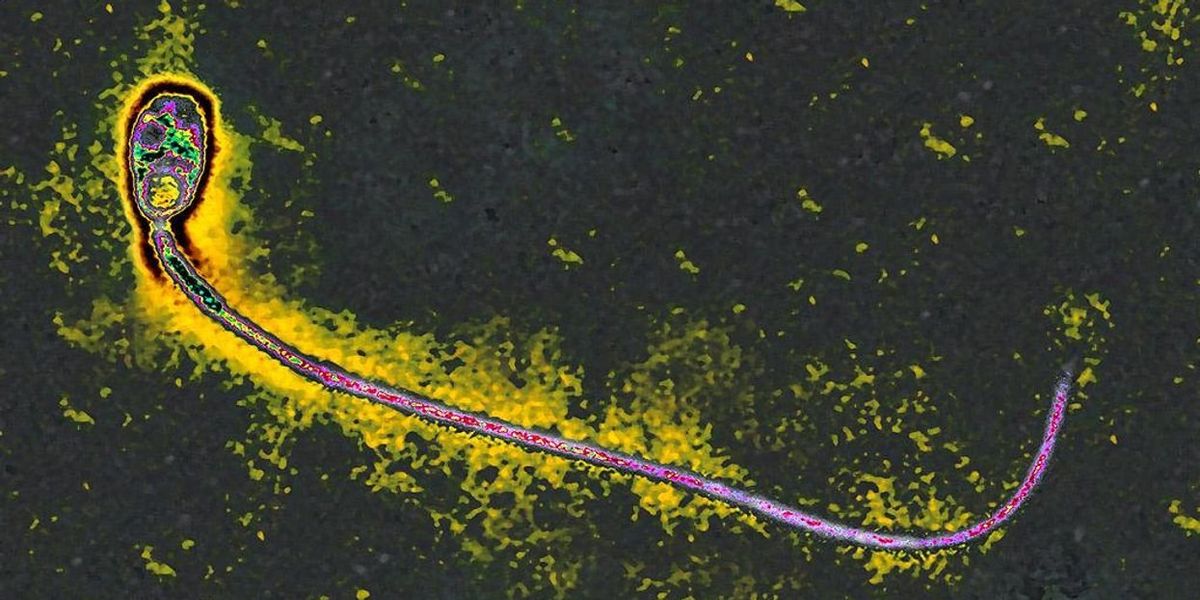

Toxoplasma gondii is a protozoan parasite that can infect any nucleated cell in any warm-blooded animal and can cause a wide range of health complications — some fatal, such as miscarriage or inflammation of the brain. Over 40 million Americans are infected with the parasite, according to the Centers for Disease Control and Prevention, and it infects an estimated 30%-50% of the total world population.
This parasite is stereotypically associated with crazy "cat ladies" on account of the parasite's presence in cat feces — cats are its only known definitive hosts — and its association with schizophrenia, bipolar disorder, obsessive compulsive disorder, and suicidal behavior.
Researchers from Chile, Germany, and Uruguay confirmed in a new peer-reviewed study published in the FEBS Journal that the rapidly dividing asexual form of Toxoplasma gondii, generally known as tachyzoites, "colonize and proliferate" within testes and in the coiled sperm-storing tube behind each testicle.
RELATED: Lancet study: Fertility is plummeting globally, with over half of countries below replacement level
 Toxoplasmosis from AIDS-infected patient. Photo By BSIP/UIG Via Getty Images
Toxoplasmosis from AIDS-infected patient. Photo By BSIP/UIG Via Getty Images
Besides its capacity to behead and deform sperm, the researchers indicated that the parasite's alterations to "mitochondrial activity can cause oxidative stress leading to male infertility."
Bill Sullivan, a professor of microbiology and immunology at Indiana University, recently noted that "testicular function and sperm production are sharply diminished in Toxoplasma-infected mice, rats, and rams. Infected mice have significantly lower sperm counts and a higher proportion of abnormally shaped sperm."
While the researchers indicated in the new study that the parasite's impact on sperm could be a factor contributing to the global declines in male fertility in recent decades, Sullivan suggested that "studies to date that show defects in the sperm of infected men are too small to draw firm conclusions at this time."
The CDC indicated that infections can occur as the result of eating contaminated under-cooked meat or shellfish or unwashed contaminated produce; contact with cat excrement; mother-to-child transmission; and receipt of an infected organ transplant or blood transfusion.
The agency recommended a number of precautions that might reduce the risk of infection, including wearing gloves when gardening or touching sand possibly contaminated with the parasite; ensuring food is cooked to a safe internal temperature; keeping meat frozen at sub-zero temperatures for several days before cooking; ensuring vegetables are properly rinsed before cooking and/or consumption; and, in the case of cat owners, changing litter boxes daily.
Like Blaze News? Bypass the censors, sign up for our newsletters, and get stories like this direct to your inbox. Sign up here!
.png)
 1 day ago
9
1 day ago
9















 English (US)
English (US)